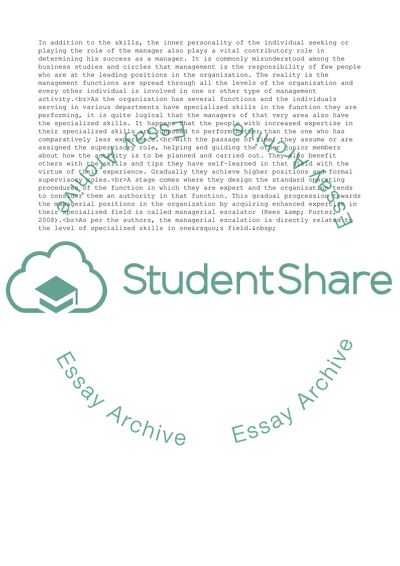Cite this document
(“Concept of Managerial Escalator Coursework Example | Topics and Well Written Essays - 1750 words - 1”, n.d.)
Retrieved de https://studentshare.org/management/1589368-examine-the-extent-to-which-the-concept-of-the-managerial-escalator-rees-porter-2008-fits-with-the-experience-of-two-managers
Retrieved de https://studentshare.org/management/1589368-examine-the-extent-to-which-the-concept-of-the-managerial-escalator-rees-porter-2008-fits-with-the-experience-of-two-managers
(Concept of Managerial Escalator Coursework Example | Topics and Well Written Essays - 1750 Words - 1)
https://studentshare.org/management/1589368-examine-the-extent-to-which-the-concept-of-the-managerial-escalator-rees-porter-2008-fits-with-the-experience-of-two-managers.
https://studentshare.org/management/1589368-examine-the-extent-to-which-the-concept-of-the-managerial-escalator-rees-porter-2008-fits-with-the-experience-of-two-managers.
“Concept of Managerial Escalator Coursework Example | Topics and Well Written Essays - 1750 Words - 1”, n.d. https://studentshare.org/management/1589368-examine-the-extent-to-which-the-concept-of-the-managerial-escalator-rees-porter-2008-fits-with-the-experience-of-two-managers.


